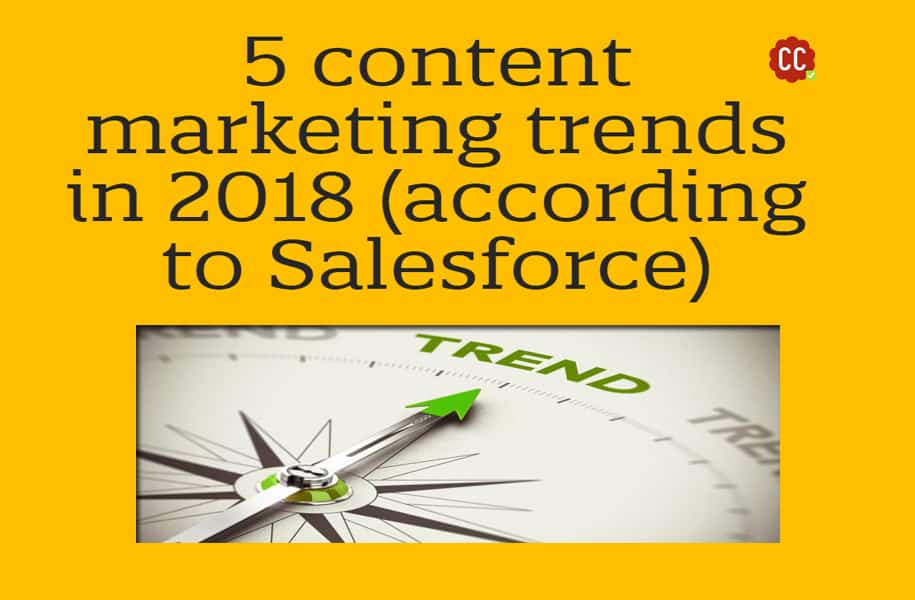 Although the fundamentals of content marketing are unchanging, the trends keep changing every year. This is because new content sharing platforms keep popping up and the line between various formats (text, video, image) is constantly being blurred.
Although the fundamentals of content marketing are unchanging, the trends keep changing every year. This is because new content sharing platforms keep popping up and the line between various formats (text, video, image) is constantly being blurred.
I will have my own take on this sometime in the future, but this Salesforce blog (accompanied by a podcast) throws some light on the 5 content marketing trends in 2018.
Summarily, the 5 content marketing trends in 2018 (according to the Salesforce post) are:
- The job profiles of content marketing teams are changing: With content marketing (on the web) blossoming into a complete realm in itself and being recognized as one of the most vital marketing tools, it no longer means writing blog posts and articles and hoping to generate traffic from them. It’s a complete discipline. You need to have an expertise. You need to have a knack for creating killer content and then statistically distributing that content.
- Adaptable, contextual content: In the coming years content will no longer be simple blog posts and Facebook and LinkedIn updates. Devices will be interacting with each other without human interaction and lots of content would be changed between them. Quality AI-powered voice-interfaces are making an impact on how content is ranked and used by search engines like Google. More content is written the way people speak. More content is written in the form of answering questions rather than ongoing monologues. Contextually, content will need to learn to exist independently so that the central communication is not failed even when a small chunk of content is picked by a random device.
- Transparency and credibility is going to matter more: There is lots of content on the Internet. Whom do you trust? If a particular company is making some claims through its content, since everybody is producing content, it is very difficult to believe who is telling the truth. So, complete transparency will be demanded – from whom the content is coming, who is publishing it and from where the data is being picked.
- Content is going to be the fundamental building block for all types of marketing: There are many companies that are already building their entire marketing strategy on the foundation of their content. Coca-Cola for example. Their official website is called Journey, which is nothing but pure content. When companies and organizations start using stories to promote their products and services instead of advertisements, content is obviously going to be at the center of all promotional activity.
- There is going to be little difference between paid, owned and earned media: First, here is a blog post on the Differences between Owned, Earned and Paid content marketing channels. What this means is, these days your content can exist on multiple platforms. In traditional sense, owned content is whatever content you publish under your own blog or domain name. But then what about content that you publish on Facebook or Medium? People are also publishing blog posts on LinkedIn? Although the content is published by you, it belongs to a different medium.
It’s always good to know about the emerging trend in your field, in this case, content marketing, so that instead of following, you lead at the front.
Trends change from year to year but what remains the same is the quality of content that you produce and distribute.
